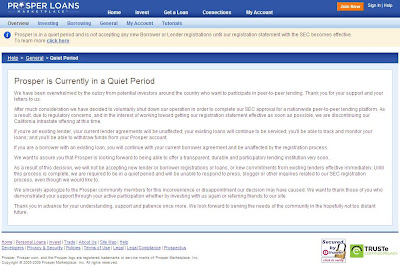
A few days ago I had the opportunity to talk with Erin Lozano, the COO and founder of Green Sherpa about how the company has changed since the launch a year ago.
Green Sherpa ended its Beta program in August and launched its full subscription services. They now support more than 10,000 financial institutions and in addition to those already serviced by Yodlee, also can manually establish connections to their customers’ banks—a service the competition isn’t offering. They’ve also added more cash-flow planning tools and goal-tracking tools for users and are getting ready to debut a few more new tools in the next 60 days (though I don’t get to report on those...yet.).
Green Sherpa is one of the only hybrid aggregating services as they can combine automated aggregation as well as set up individual connections. Green Sherpa worked to establish additional layers of security beyond what is offered by their aggregation provider. They’re also one of just a handful of software-as-a-service (SaaS) or “cloud” software providers that is charging a fee for an online-only product in the personal financial management field.
The company is lean and mean, with six employees and a ridiculously low breakeven point of only 5,000 subscribers, but their personal touch and low price (US $7.95 a month or $5.95 for pre-paying a year) sets them apart from other companies who provide software. Greens Sherpa is striving to provide its customers with an intimate snapshot of their own financial progress and future, not data on a dashboard.
Green Sherpa eliminates the manual data of Excel and Quicken, but also allows customers to download their own data to save, archive and manipulate, even if they choose to cancel the service.
The company also has an active advisory team including former leadership from Commission Junction.
Green Sherpa rolled out an affiliate program this month, which is fully operated on their site, not served through an ad company.
I asked Lozano about how the marketplace has changed since we spoke last in March. She explained that Mint and Quicken have released features that are becoming more forward-looking, and hence now more competing in the same space. Following the recent announcement that Mint would be moving under the Intuit brand, Lozano surprisingly said this is good news to her. “We think that this validates the web based personal financial management space which will be good for all remaining players in the market, including Green Sherpa” she said via email in a follow up conversation.
One thing that hasn’t changed is Green Sherpa’s commitment to a valuable forward-looking product, zero conflict of interest (not advertising/selling to subscribers) and complete privacy to users.
Green Sherpa has changed in one way—temporarily suspending subscriptions, giving users a 90 day free trial period to use the service. Existing subscribers will receive an additional 90 days free. The official company announcement to subscribers is expected out this week.
Jessica Ward is a freelance writer in Seattle, writing on family and personal finance. You can also find her online at www.jessicaward.me or www.thepennywisefamily.com






















 SmartyPig continues to respond to customers in real-time, and has added a "lower this" to reduce your monthly savings if friends and family members' contributions to your savings goal has enabled you to choose between meeting your goal sooner, or reducing your monthly contribution. It suggests the difference for you too, so you don't have to do the math.
SmartyPig continues to respond to customers in real-time, and has added a "lower this" to reduce your monthly savings if friends and family members' contributions to your savings goal has enabled you to choose between meeting your goal sooner, or reducing your monthly contribution. It suggests the difference for you too, so you don't have to do the math.
